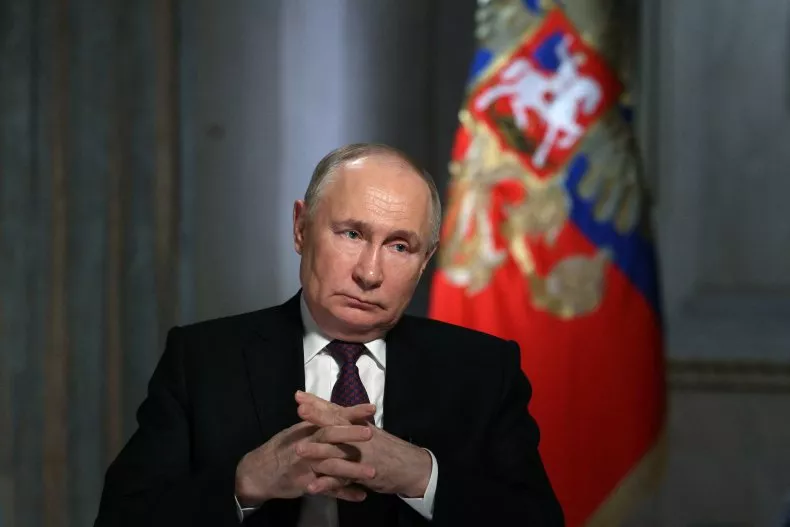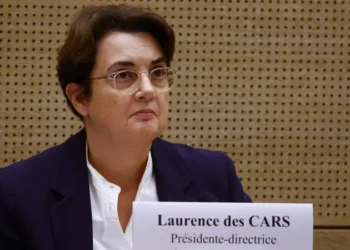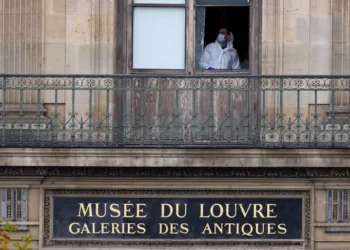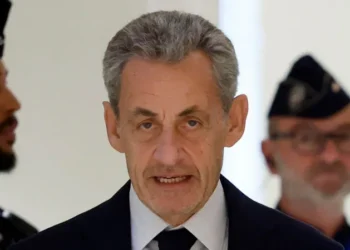President Vladimir Putin has condemned US sanctions on Russian oil firms, saying that Russia will never bow to US pressure.
The US imposed sanctions on Rosneft and Lukoil, as well as nearly three dozen of their subsidiaries, as the Trump administration increased pressure on the Kremlin to negotiate an end to its war against Ukraine.
The measures against Rosneft and Lukoil – which together account for just under half of Russia’s crude exports, and follow UK sanctions last week on the companies – were the first sanctions imposed on Moscow since Donald Trump returned to the White House in January and are aimed at choking off the vital oil revenues that fund the Kremlin’s war machine.
Putin described the US sanctions as an “unfriendly act that does nothing to strengthen Russian-American relations” and “an attempt to put pressure on Russia,” which he said was futile. “No self-respecting country ever does anything under pressure,” Putin added.
While he said that the new sanctions would not have a significant impact on Russia, he acknowledged that “some losses are expected.”
Also, Putin suggested that Trump should “think about who his administration is really working for” when advisers urge him to impose sanctions on Russian oil, and warned that the measures will lead to a rise in prices.
The latest US sanctions bar foreign countries and companies from doing business with Moscow’s major oil producers and cut them off from much of the international financial system.
The oil and gas sector accounts for roughly a fifth of Russia’s GDP, and a sudden fall in demand from Russia’s two main buyers would be a devastating hit to the Kremlin’s oil revenues while pushing global prices higher.
Compliance with the sanctions would mean giving up access to the cut-price Russian crude that has helped shield their economies from rising global energy costs.
Some experts linked to the Kremlin also acknowledged that the US measures could hurt the Russian economy.
Igor Yushkov, an energy specialist at the Financial University under the Russian government, opined that the sanctions on Rosneft and Lukoil would make Asian customers reluctant to buy oil directly, forcing the companies to rely on longer chains of intermediaries to charter tankers and sell their crude – a shift that would drive up costs.
However, Dmitry Medvedev, Russia’s former president and a senior security official known for his increasingly belligerent rhetoric, described the US measures as an “act of war.”
“The US is our enemy. Its talkative ‘peacemaker’ has now fully embarked on a path of war against Russia.”
Dmitry Medvedev
The impact of the sanctions will largely depend on how strictly they are enforced – particularly on whether Washington is prepared to impose secondary sanctions on countries that continue to do business with Russia’s oil companies.
Russia has a month to prepare before the restrictions take full effect and will probably use that time to adapt to the new situation.
Moscow has long found ways to evade western sanction through opaque trading schemes as well as its “shadow fleet” network.
The network, which relies on ageing vessels sailing under obscure flags and managed through shell companies in the Middle East and Asia, has enabled Russia to sustain oil exports to key customers in India and China despite the G7 price cap and EU embargo.
Putin Says Meeting With Trump Postponed
Commenting on Trump’s abrupt decision to cancel a summit in Budapest, Putin said the meeting would “likely be postponed,” adding that it would be a mistake to hold it without proper preparation.
Trump said during the US election campaign that he would swiftly end the Ukraine war. After leaning heavily on Ukrainian President Volodymyr Zelenskyy, he has recently expressed disappointment and frustration with Putin.
Trump, who has described Russia as a “paper tiger”, said on Wednesday that he had cancelled the planned summit with Putin.
Putin added that he remained open to talks with Trump, saying that “dialogue is always better than war.”
READ ALSO: Energy Minister Engages Electrical Contractors on Safety and Regulatory Reform























